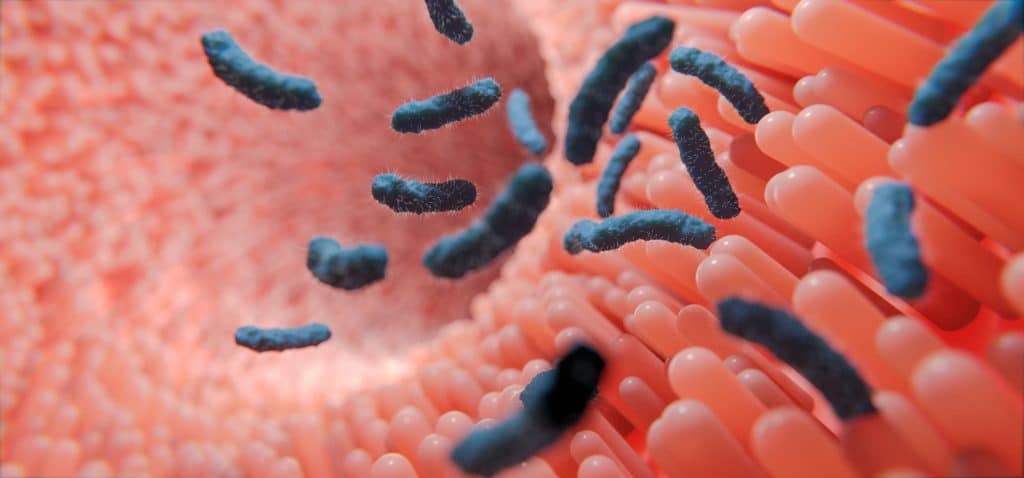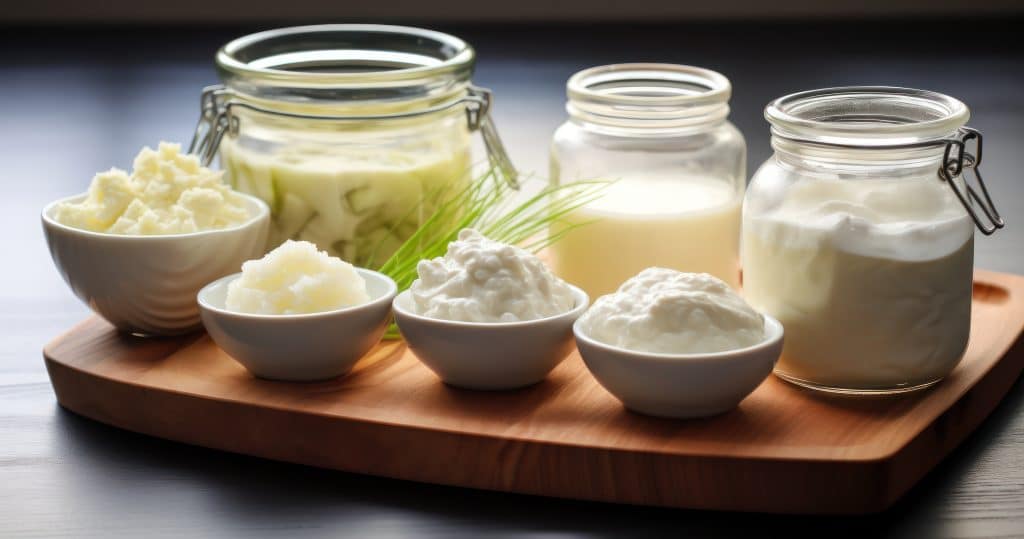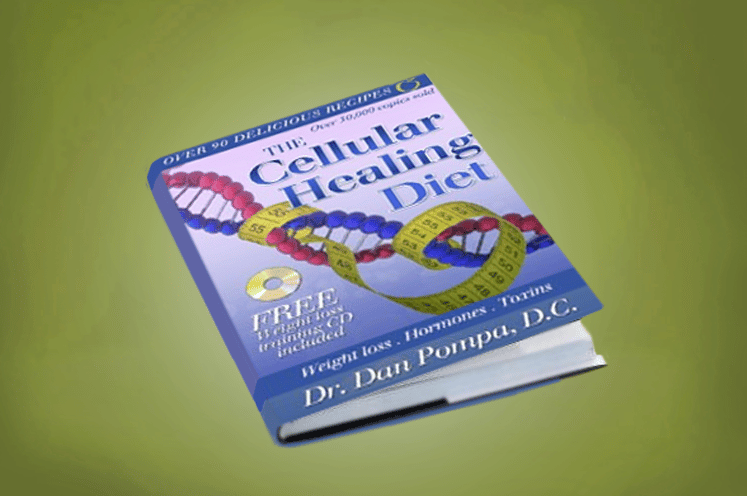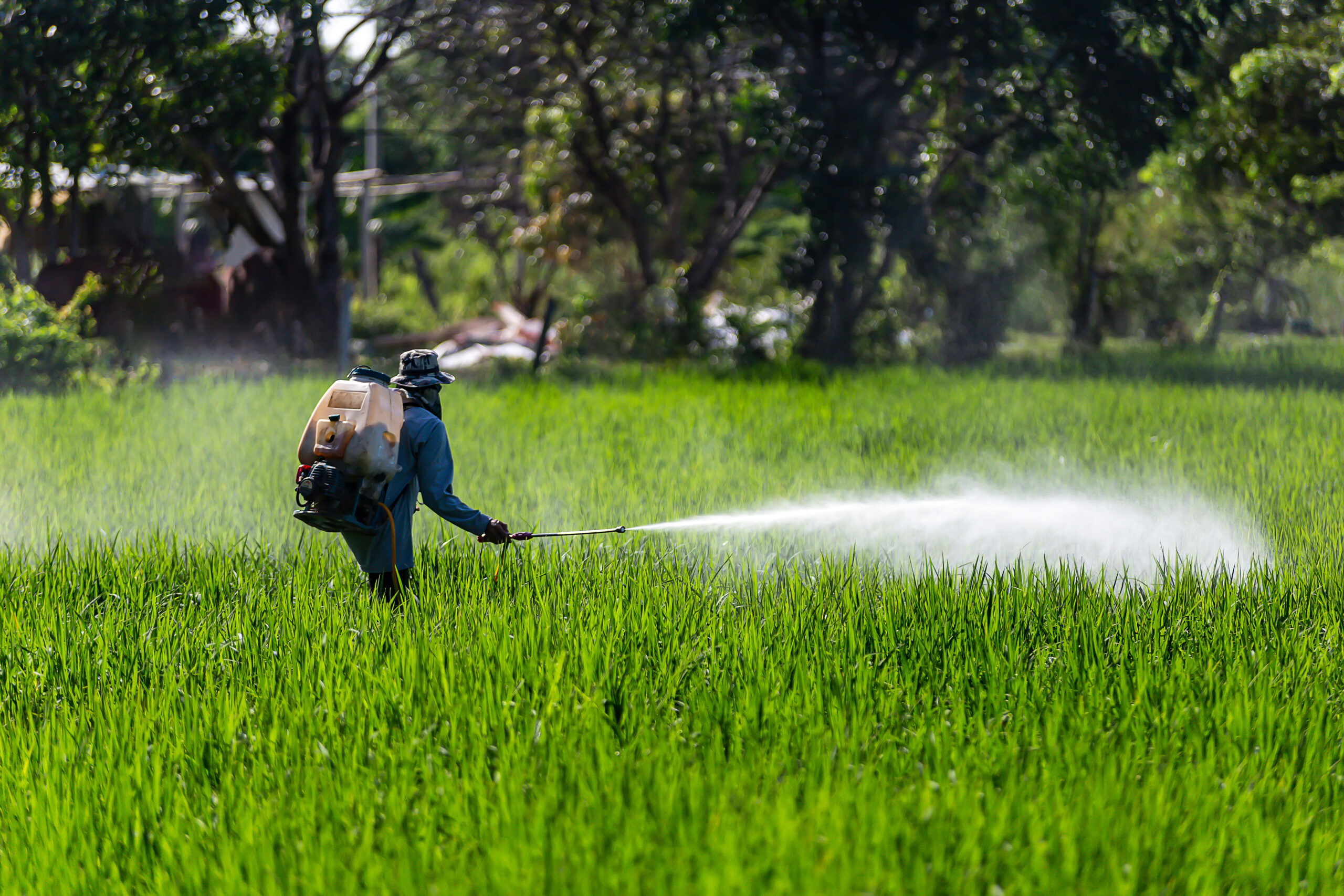What Causes Food Allergies – Addressing Gut Microbiome Dysfunction
Exactly what causes food allergies is multifold, however, microbiome dysfunction is mainly to blame. Around 15 million Americans suffer from food allergies and the prevalence of food allergies has increased by approximately 50% over the last two decades. Food allergies may lead to severe allergic reactions and even life-threatening anaphylaxis, making it a serious health concern.1 2
Testing For Food Allergies
Food allergy tests are often inaccurate and can lead to unnecessary dietary restrictions and expenses. One of the main reasons why food allergy tests are not always accurate is because they measure the presence of IgE antibodies in the blood, which are produced by the immune system in response to an allergen. However, just because these antibodies are present, it doesn’t necessarily mean that a person will experience an allergic reaction when consuming a particular food.3
In fact, studies have shown that many people with positive results on food allergy tests do not actually have any symptoms when they consume the food in question. This is known as a false positive result and can lead to unnecessary avoidance of certain foods.4
Furthermore, food allergies can also change over time. Just because a person tests positive for an allergy to a certain food at one point in their life, it doesn’t mean that they will always be allergic to it. This is especially true for children, who may outgrow their allergies as their immune system develops and changes.5
Another issue with food allergy tests is that they often do not test for all potential allergens. For example, a person may be allergic to a certain ingredient in a food, but the test only looks for allergies to common ingredients like milk or eggs. This can result in missing important allergies and causing further confusion.6
What Causes Food Allergies – Gut Microbiome Dysfunction
The gut microbiome refers to the complex ecosystem of microorganisms that live in our digestive system. These microorganisms play a crucial role in maintaining our overall health, including supporting our immune system. When there is an imbalance or disruption in the gut microbiome, it can lead to various health issues, including food allergies.7
Research has shown that individuals with food allergies have a different composition of gut microbiome compared to those without food allergies. This suggests that a healthy and diverse gut microbiome plays a protective role against the development of food allergies.8
In some cases, a lack of exposure to certain bacterial strains in early life can contribute to an increase in food allergies. This is known as the hygiene hypothesis, which suggests that our modern, sanitized lifestyles have caused a decrease in exposure to beneficial microorganisms, leading to an increase in allergies and immune-related disorders.9
Another explanation is that certain gut bacteria may affect the permeability of the intestinal lining, allowing allergenic proteins from food to pass through and trigger an allergic response. Additionally, imbalances in the gut microbiome can lead to inflammation and changes in the immune response, which may contribute to the development of food allergies.10

What Causes Food Allergies – Leaky Gut Syndrome
One of the key elements in reversing food allergies is healing the gut. Often, food allergies are a result of a compromised gut lining, also known as leaky gut syndrome. This is when the lining of the intestines becomes permeable, allowing particles from undigested food to enter the bloodstream and trigger an immune response.11
To reverse leaky gut syndrome, consume a diet that eliminates common allergens such as gluten, dairy, and processed foods. Instead, focus on consuming whole, nutrient-dense foods that support gut health such as bone broth, fermented foods, and healthy fats. Addressing gut microbiome imbalances through diet has shown promising results in improving symptoms and reducing allergic reactions.12
Read more about Leaky Gut Syndrome.
What Causes Food Allergies – Antibiotics
Research has shown that early childhood exposure to antibiotics increases the risk of developing food allergies later on. This is because our gut microbiome plays a crucial role in training our immune system and regulating allergic responses.13
Antibiotics also directly affect the lining of our digestive tract, making it more permeable and allowing allergens to enter our bloodstream more easily. This can trigger an immune response and lead to the development of food allergies.14
What Causes Food Allergies – Inflammation
An important aspect of reversing food allergies is reducing inflammation in the body. Chronic inflammation contributes to a weakened immune system and increases the severity of allergic reactions.15
Chronic inflammation can be caused by a variety of factors, including stress, lack of sleep, poor diet, and exposure to toxins. Inflammation can also be triggered by food allergies, as the body sees certain foods as invaders and mounts an immune response to fight them off.16
One of the key ways to reduce inflammation in the body is through diet. Consuming a diet rich in anti-inflammatory foods such as fruits, vegetables, grass-fed meat, and healthy fats helps to counteract chronic inflammation. These foods are high in antioxidants, omega-3 and omega-6 fatty acids, and other nutrients that help to fight off inflammation.17
Read more about the detrimental effects of chronic inflammation.

What Causes Food Allergies – Stress
Stress management is crucial in reversing food allergies. Stress can worsen allergic reactions and weaken the immune system, making it more susceptible to allergies. Furthermore, stress can also alter gut health and cause inflammation. Stress management techniques such as meditation, deep breathing exercises, and regular exercise can help reduce stress levels and improve the overall health of the body.18
What Causes Food Allergies – Processed Foods
Studies suggest a link between consuming processed foods and the development of food allergies. Processed foods are those that have been altered from their natural state through various methods such as cooking, canning, freezing, or adding preservatives and additives. These types of foods are often found in the middle aisles of grocery stores and are usually high in calories, salt, sugar, and unhealthy fats.19
The increase in food allergies is often attributed to the consumption of processed foods. Processed foods tend to contain a limited variety of ingredients, which increase the risk of developing food allergies. Moreover, processed foods often contain synthetic additives and preservatives that may trigger an allergic reaction in some individuals.20
Another possible explanation is the effect of processing methods on proteins found in foods. Processing alters the structure of proteins, making them unrecognizable to the immune system and causing it to react as if they were foreign invaders. This leads to the development of food allergies.21
Reversing Food Allergies – Probiotic-Rich Food
Probiotics are often referred to as “good” bacteria because they help maintain a healthy balance of microorganisms in the gut. This is important because it is estimated that 70-80% of the body’s immune system is located in the gut. When this balance is disrupted, it can lead to various health issues, including food allergies.22
Research has shown that probiotics help to improve gut health and strengthen the immune system. By introducing beneficial bacteria into the gut, probiotics can help reduce inflammation and promote a healthy immune response to potential allergens.23

Reversing Food Allergies – Eating A Diet Of Real, Whole Food
Real, whole foods are foods that have not been processed or refined. This includes fruits, vegetables, grass-fed meat, wild-caught fish, nuts, seeds, and healthy fats like olive oil. These foods are packed with nutrients and enzymes that can help boost the immune system and reduce inflammation in the body.24
By switching to a diet of real, whole foods, individuals often experience a reduction or even complete reversal of their food allergies. This is because these foods provide the necessary nutrients and enzymes to support a healthy immune system and reduce inflammation.25
Read more about the Cellular Healing Diet.

What Causes Food Allergies – Addressing Gut Microbiome Dysfunction
By improving gut health, we can reverse food allergies and improve our overall health. It’s important to remember that every person’s gut is unique and what works for one person may not work for another. With dedication and patience, it is possible to overcome food allergies without having to avoid certain foods for the rest of our lives.
Read more about improving the microbiome.
References
1 Warren CM, Jiang J, Gupta RS. Epidemiology and Burden of Food Allergy. Curr Allergy Asthma Rep. 2020 Feb 14;20(2):6. doi: 10.1007/s11882-020-0898-7. PMID: 32067114; PMCID: PMC7883751.
2 Tomar S, Hogan SP. Recent advances in mechanisms of food allergy and anaphylaxis. F1000Res. 2020 Jul 31;9:F1000 Faculty Rev-863. doi: 10.12688/f1000research.25638.1. PMID: 32789004; PMCID: PMC7401090.
3 Worm M, Reese I, Ballmer-Weber B, Beyer K, Bischoff SC, Classen M, Fischer PJ, Fuchs T, Huttegger I, Jappe U, Klimek L, Koletzko B, Lange L, Lepp U, Mahler V, Niggemann B, Rabe U, Raithel M, Saloga J, Schäfer C, Schnadt S, Schreiber J, Szépfalusi Z, Treudler R, Wagenmann M, Watzl B, Werfel T, Zuberbier T, Kleine-Tebbe J. Guidelines on the management of IgE-mediated food allergies: S2k-Guidelines of the German Society for Allergology and Clinical Immunology (DGAKI) in collaboration with the German Medical Association of Allergologists (AeDA), the German Professional Association of Pediatricians (BVKJ), the German Allergy and Asthma Association (DAAB), German Dermatological Society (DDG), the German Society for Nutrition (DGE), the German Society for Gastroenterology, Digestive and Metabolic Diseases (DGVS), the German Society for Oto-Rhino-Laryngology, Head and Neck Surgery, the German Society for Pediatric and Adolescent Medicine (DGKJ), the German Society for Pediatric Allergology and Environmental Medicine (GPA), the German Society for Pneumology (DGP), the German Society for Pediatric Gastroenterology and Nutrition (GPGE), German Contact Allergy Group (DKG), the Austrian Society for Allergology and Immunology (Æ-GAI), German Professional Association of Nutritional Sciences (VDOE) and the Association of the Scientific Medical Societies Germany (AWMF). Allergo J Int. 2015;24:256-293. doi: 10.1007/s40629-015-0074-0. Epub 2015 Nov 7. PMID: 27069841; PMCID: PMC4792347.
4 Foong RX, Dantzer JA, Wood RA, Santos AF. Improving Diagnostic Accuracy in Food Allergy. J Allergy Clin Immunol Pract. 2021 Jan;9(1):71-80. doi: 10.1016/j.jaip.2020.09.037. PMID: 33429723; PMCID: PMC7794657.
5 Sicherer SH, Warren CM, Dant C, Gupta RS, Nadeau KC. Food Allergy from Infancy Through Adulthood. J Allergy Clin Immunol Pract. 2020 Jun;8(6):1854-1864. doi: 10.1016/j.jaip.2020.02.010. PMID: 32499034; PMCID: PMC7899184.
6 O’Keefe AW, De Schryver S, Mill J, Mill C, Dery A, Ben-Shoshan M. Diagnosis and management of food allergies: new and emerging options: a systematic review. J Asthma Allergy. 2014 Oct 24;7:141-64. doi: 10.2147/JAA.S49277. PMID: 25368525; PMCID: PMC4216032.
7 Nance CL, Deniskin R, Diaz VC, Paul M, Anvari S, Anagnostou A. The Role of the Microbiome in Food Allergy: A Review. Children (Basel). 2020 May 26;7(6):50. doi: 10.3390/children7060050. PMID: 32466620; PMCID: PMC7346163.
8 Bunyavanich S, Berin MC. Food allergy and the microbiome: Current understandings and future directions. J Allergy Clin Immunol. 2019 Dec;144(6):1468-1477. doi: 10.1016/j.jaci.2019.10.019. PMID: 31812181; PMCID: PMC6905201.
9 Zhao W, Ho HE, Bunyavanich S. The gut microbiome in food allergy. Ann Allergy Asthma Immunol. 2019 Mar;122(3):276-282. doi: 10.1016/j.anai.2018.12.012. Epub 2018 Dec 20. PMID: 30578857; PMCID: PMC6389411.
10 Gargano D, Appanna R, Santonicola A, De Bartolomeis F, Stellato C, Cianferoni A, Casolaro V, Iovino P. Food Allergy and Intolerance: A Narrative Review on Nutritional Concerns. Nutrients. 2021 May 13;13(5):1638. doi: 10.3390/nu13051638. PMID: 34068047; PMCID: PMC8152468.
11 Camilleri M. Leaky gut: mechanisms, measurement and clinical implications in humans. Gut. 2019 Aug;68(8):1516-1526. doi: 10.1136/gutjnl-2019-318427. Epub 2019 May 10. PMID: 31076401; PMCID: PMC6790068.
12 Aleman RS, Moncada M, Aryana KJ. Leaky Gut and the Ingredients That Help Treat It: A Review. Molecules. 2023 Jan 7;28(2):619. doi: 10.3390/molecules28020619. PMID: 36677677; PMCID: PMC9862683.
13 Li M, Lu ZK, Amrol DJ, Mann JR, Hardin JW, Yuan J, Cox CL, Love BL. Antibiotic Exposure and the Risk of Food Allergy: Evidence in the US Medicaid Pediatric Population. J Allergy Clin Immunol Pract. 2019 Feb;7(2):492-499. doi: 10.1016/j.jaip.2018.09.036. Epub 2018 Nov 20. PMID: 30468878.
14 Paray BA, Albeshr MF, Jan AT, Rather IA. Leaky Gut and Autoimmunity: An Intricate Balance in Individuals Health and the Diseased State. Int J Mol Sci. 2020 Dec 21;21(24):9770. doi: 10.3390/ijms21249770. PMID: 33371435; PMCID: PMC7767453.
15 Furman D, Campisi J, Verdin E, Carrera-Bastos P, Targ S, Franceschi C, Ferrucci L, Gilroy DW, Fasano A, Miller GW, Miller AH, Mantovani A, Weyand CM, Barzilai N, Goronzy JJ, Rando TA, Effros RB, Lucia A, Kleinstreuer N, Slavich GM. Chronic inflammation in the etiology of disease across the life span. Nat Med. 2019 Dec;25(12):1822-1832. doi: 10.1038/s41591-019-0675-0. Epub 2019 Dec 5. PMID: 31806905; PMCID: PMC7147972.
16 Pahwa R, Goyal A, Jialal I. Chronic Inflammation. [Updated 2023 Aug 7]. In: StatPearls [Internet]. Treasure Island (FL): StatPearls Publishing; 2023 Jan-. Available from: https://www.ncbi.nlm.nih.gov/books/NBK493173/
17 Dragan S, Șerban MC, Damian G, Buleu F, Valcovici M, Christodorescu R. Dietary Patterns and Interventions to Alleviate Chronic Pain. Nutrients. 2020 Aug 19;12(9):2510. doi: 10.3390/nu12092510. PMID: 32825189; PMCID: PMC7551034.
18 Schreier HM, Wright RJ. Stress and food allergy: mechanistic considerations. Ann Allergy Asthma Immunol. 2014 Apr;112(4):296-301. doi: 10.1016/j.anai.2013.08.002. Epub 2013 Aug 28. PMID: 24428964; PMCID: PMC4260715.
19 Kong W, Xie Y, Zhong J, Cao C. Ultra-processed foods and allergic symptoms among children and adults in the United States: A population-based analysis of NHANES 2005-2006. Front Public Health. 2022 Nov 3;10:1038141. doi: 10.3389/fpubh.2022.1038141. PMID: 36407984; PMCID: PMC9670314.
20 Witkowski M, Grajeta H, Gomułka K. Hypersensitivity Reactions to Food Additives-Preservatives, Antioxidants, Flavor Enhancers. Int J Environ Res Public Health. 2022 Sep 13;19(18):11493. doi: 10.3390/ijerph191811493. PMID: 36141765; PMCID: PMC9517530.
21 Hoffmann-Sommergruber K. Proteomics and its impact on food allergy diagnosis. EuPA Open Proteom. 2016 Apr 2;12:10-12. doi: 10.1016/j.euprot.2016.03.016. PMID: 29900114; PMCID: PMC5988494.
22 Lopez-Santamarina A, Gonzalez EG, Lamas A, Mondragon ADC, Regal P, Miranda JM. Probiotics as a Possible Strategy for the Prevention and Treatment of Allergies. A Narrative Review. Foods. 2021 Mar 25;10(4):701. doi: 10.3390/foods10040701. PMID: 33806092; PMCID: PMC8064452.
23 Chernikova DA, Zhao MY, Jacobs JP. Microbiome Therapeutics for Food Allergy. Nutrients. 2022 Dec 3;14(23):5155. doi: 10.3390/nu14235155. PMID: 36501184; PMCID: PMC9738594.
24 Leone L, Mazzocchi A, Maffeis L, De Cosmi V, Agostoni C. Nutritional management of food allergies: Prevention and treatment. Front Allergy. 2023 Jan 6;3:1083669. doi: 10.3389/falgy.2022.1083669. PMID: 36686963; PMCID: PMC9853442.
25 Wagenaar CA, van de Put M, Bisschops M, Walrabenstein W, de Jonge CS, Herrema H, van Schaardenburg D. The Effect of Dietary Interventions on Chronic Inflammatory Diseases in Relation to the Microbiome: A Systematic Review. Nutrients. 2021 Sep 15;13(9):3208. doi: 10.3390/nu13093208. PMID: 34579085; PMCID: PMC8464906.




